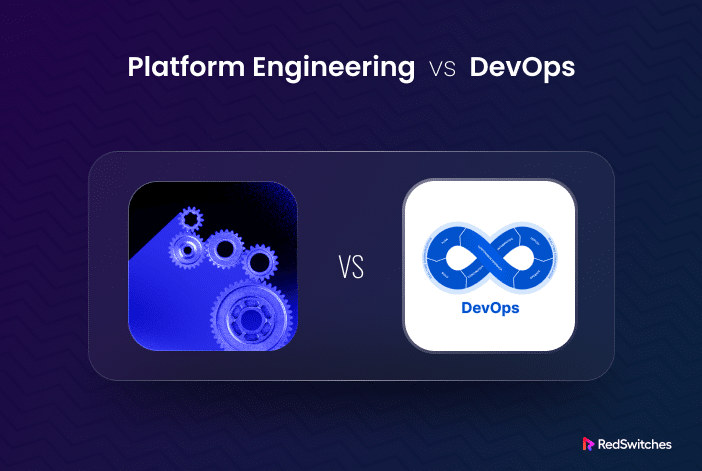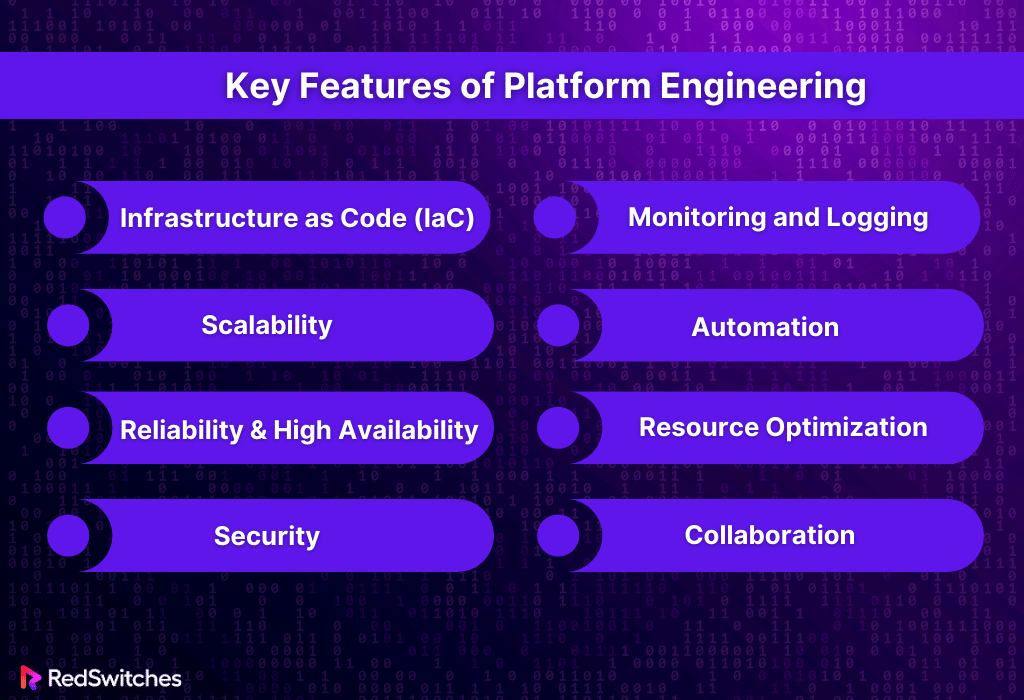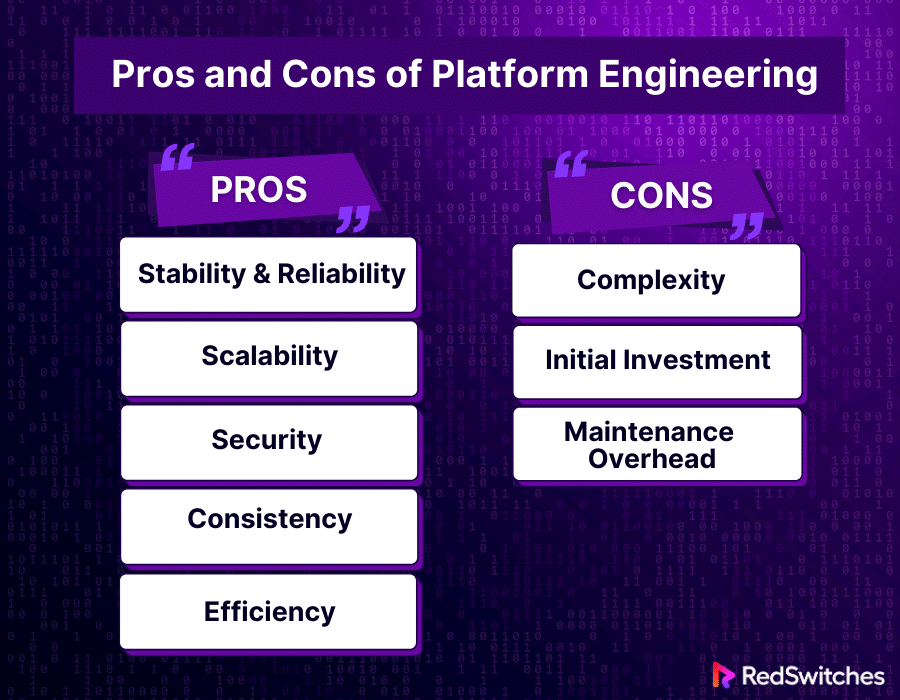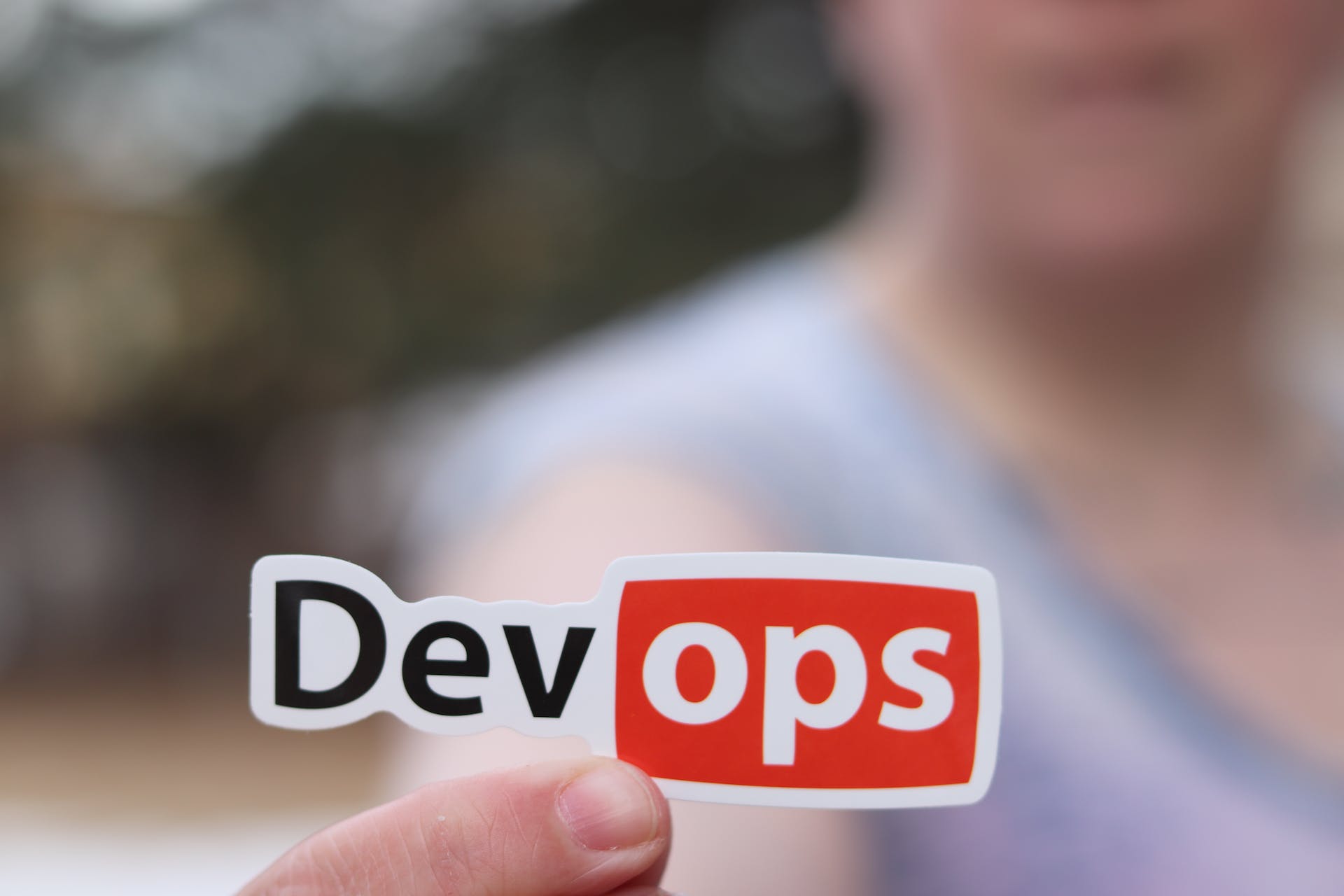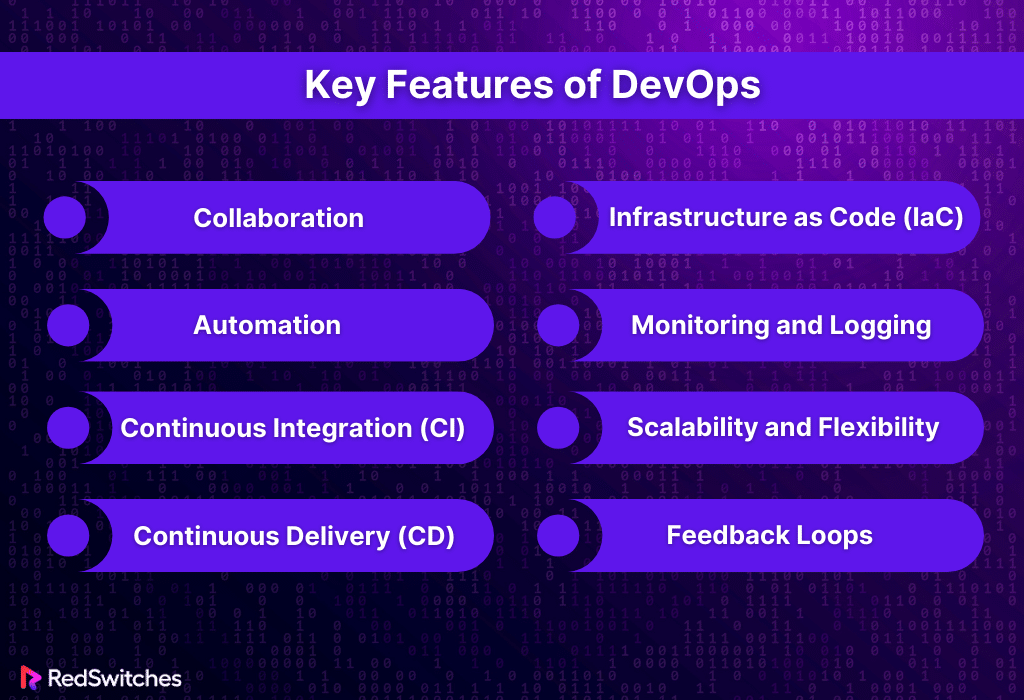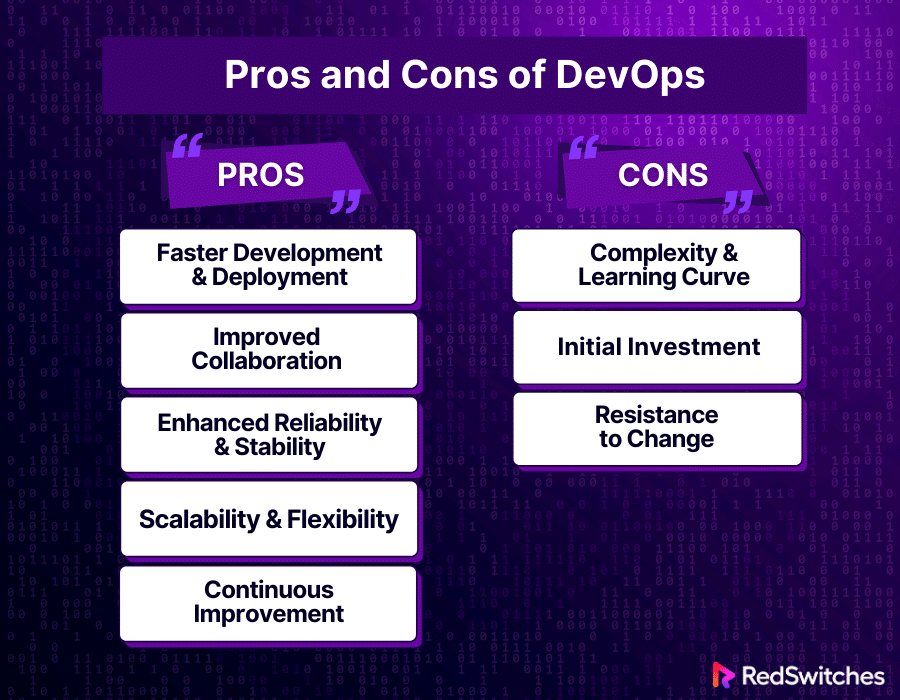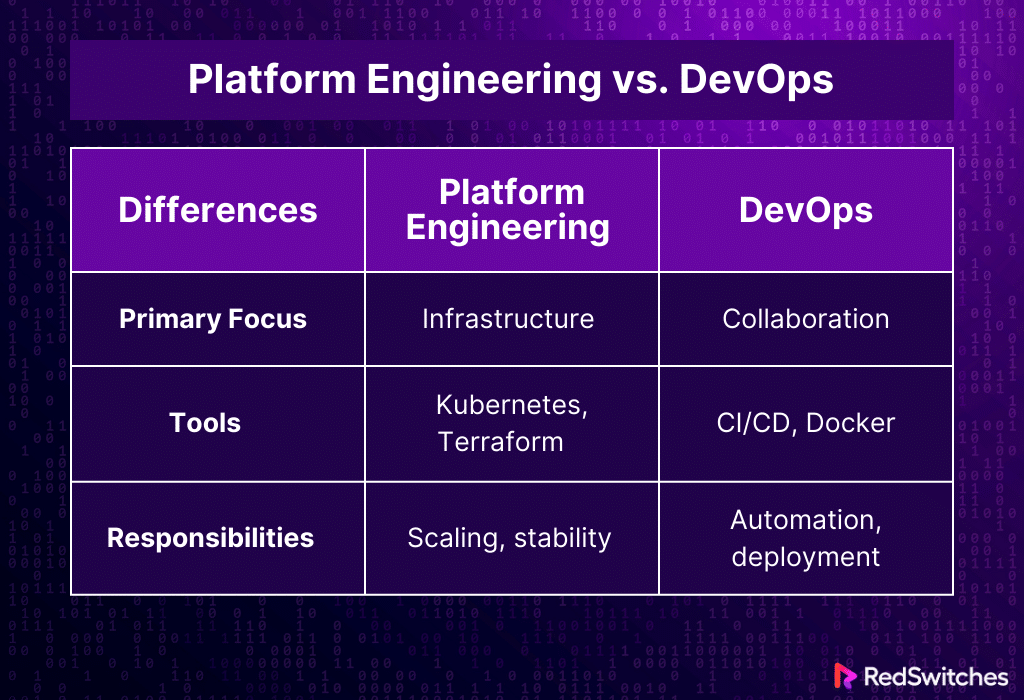In today’s rapidly evolving technology landscape, businesses constantly seek innovative solutions to streamline operations, improve efficiency, and deliver value to their customers. Two methodologies that have gained significant traction in this regard are Platform Engineering and DevOps.
In 2019, the DevOps market reached $4 billion and is expected to grow at a CAGR of approximately 20% between 2020 – 2026. According to another forecast, around 80% of software engineering firms will use platform engineering teams by 2026.
While both methodologies are prevalent, it is essential to understand that while one may be suitable for a specific organization, the other may be the better choice for another organization with varying software development and development needs.
This blog will compare platform engineering vs DevOps, highlighting their key features, pros and cons, and differences to help you make informed decisions.
Table of Contents
- What is Platform Engineering?
- What is DevOps?
- Platform Engineering vs DevOps
- The Relationship between Platform Engineering and DevOps
- DevOps or Platform Engineering or Hybrid?
- Conclusion – Platform Engineering vs DevOps
- FAQs
What is Platform Engineering?
Before we compare Platform Engineering vs DevOps, it is important to understand their definitions.
Platform Engineering is a discipline within the software development world and operations that focuses on creating and maintaining the foundational infrastructure and tools required to support an organization’s applications and services. It bridges traditional infrastructure management and modern DevOps practices, emphasizing the technology stack’s automation, scalability, and reliability.
Platform Engineers are responsible for building, designing, and managing the core platform components, which often include cloud infrastructure, container orchestration systems (like Kubernetes), networking configurations, and deployment pipelines. They collaborate closely with development teams to ensure that applications run smoothly, meet performance requirements, and scale effectively to meet user demands.
Want to learn more about platform engineering? Read our in-depth blog, ‘What is Platform Engineering? Explore 12 IDP Tools’.
Key Features of Platform Engineering
Below are the top eight key features of platform engineering:
Infrastructure as Code (IaC)
Platform engineers use IaC principles to define and manage infrastructure using code. This allows for the automation, repeatability, and version control of infrastructure provisioning and configuration, making it easier to scale and maintain.
Scalability
Platform engineering emphasizes building scalable infrastructure that can adapt to varying workloads and changing demands. Scalability ensures that applications can handle increases in traffic and data without performance degradation.
Reliability and High Availability
Platform engineers design and configure systems for high availability and reliability. This includes redundancy, failover mechanisms, and load balancing to minimize downtime and ensure uninterrupted service.
Security
Platform engineers prioritize security by implementing best access control, encryption, and vulnerability management practices. They ensure the infrastructure is protected against security threats and compliant with industry regulations.
Monitoring and Logging
Effective monitoring and logging solutions are integral to platform engineering. Engineers set up tools and processes to monitor system performance, detect issues, and collect logs for troubleshooting and auditing purposes.
Automation
Automation is a core feature of platform engineering. Engineers automate repetitive tasks such as server provisioning, configuration management, and software updates. Automation reduces manual errors and accelerates deployment processes.
Resource Optimization
Platform engineers continuously optimize resource utilization to maximize efficiency and cost-effectiveness. This includes rightsizing servers, managing cloud resources, and minimizing resource waste.
Collaboration
Collaboration with development and operations teams is a crucial aspect of platform engineering. Engineers work closely with these teams to understand their requirements and ensure that the infrastructure aligns with the needs of the applications running on it.
Also Read: Unraveling the Dynamics of Terraform vs Kubernetes
Pros and Cons of Platform Engineering
Credits: Freepik
Weighing the pros and cons of platform engineering can offer valuable information into which methodology between platform engineering and DevOps suits your organization. Below are the pros and cons of platform engineering:
Pros
- Stability and Reliability: Platform engineers design and maintain stable and reliable infrastructure. This is essential for ensuring that applications run smoothly without unexpected downtime, which is crucial for business operations and customer satisfaction.
- Scalability: A well-engineered platform can quickly scale to accommodate growing workloads and increased demand. Platform engineers create systems that can handle current and future needs, reducing the risk of performance bottlenecks.
- Security: Platform engineers prioritize security by implementing the best network configuration, access control, and data protection practices. This helps in safeguarding sensitive information and mitigating security risks.
- Consistency: Platform Engineering promotes using Infrastructure as Code (IaC), ensuring that infrastructure configurations are consistent and repeatable. This consistency minimizes configuration errors and simplifies the management of infrastructure components.
- Efficiency: Platform Engineering enhances operational efficiency by automating repetitive tasks and optimizing resource utilization. This results in cost savings, as fewer resources are wasted and tasks are completed more quickly and accurately.
Also Read: What is Distributed Tracing (And Why You Should Start Using It For Microservices Architecture).
Cons
- Complexity: Building and managing a robust platform can be complex and resource-intensive. It often requires specialized skills and tools, making it challenging for smaller teams or organizations with limited resources to implement effectively.
- Initial Investment: Establishing a well-structured platform can require a significant upfront investment in time, effort, and technology. This can be a barrier for organizations with budget constraints or tight deadlines.
- Maintenance Overhead: Once a platform is in place, ongoing maintenance is necessary to ensure its continued performance and security. Platform engineers must stay vigilant, monitoring for issues, applying updates, and adapting to changing requirements.
Table 1:
What is DevOps?
Credits: Pexels
DevOps is a software development and IT operations approach focused on streamlining and enhancing the entire software development lifecycle. It emerged as a response to the traditional siloed approach in organizations, where development and operations teams worked separately, often leading to bottlenecks, delays, and communication gaps.
DevOps emphasizes collaboration, communication, automation, and integration throughout the software delivery. It encourages developers, operations professionals, and other stakeholders to work closely to deliver more efficient and quality software applications.
Key Features of DevOps
Below are the top eight key features of DevOps:
Collaboration
DevOps fosters a culture of collaboration and communication among development, operations, and other relevant teams. It breaks down silos and encourages cross-functional cooperation to streamline the software delivery process.
Automation
Automation is at the heart of DevOps. It automates repetitive tasks such as code integration, testing, deployment, and infrastructure provisioning. Automation reduces manual errors, accelerates processes, and ensures consistency.
Continuous Integration (CI)
CI is a DevOps practice where developers frequently integrate their code into a shared repository. Automated tests are run to detect and address integration issues early. This ensures that code changes are continuously validated and safely integrated into the main codebase.
Continuous Delivery (CD)
CD extends CI by automating the deployment of code changes to production or staging environments. It ensures that code is always deployable, allowing for rapid and reliable releases.
Infrastructure as Code (IaC)
IaC is a practice of managing and provisioning infrastructure using code and automation tools. DevOps teams treat infrastructure as code to ensure consistent and repeatable deployments, making infrastructure changes as agile as code changes.
Monitoring and Logging
DevOps emphasizes continuous monitoring and logging of applications and infrastructure. This helps spot and resolve issues quickly, ensuring the system remains stable and performs optimally.
Scalability and Flexibility
DevOps practices include designing systems for scalability and flexibility. This enables organizations to respond to changing demands, handle traffic spikes, and adapt to evolving requirements efficiently.
Feedback Loops
DevOps promotes feedback loops at various stages of the software delivery process. Feedback from testing, monitoring, and end-users drives continuous improvement and iterative development.
Credits: FreePik
Pros and Cons of DevOps
Weighing the pros and cons of DevOps can offer valuable insight into which methodology between platform engineering vs DevOps is best for your organization. Below are the pros and cons of DevOps:
Pros
- Faster Development and Deployment: DevOps practices promote automation, collaboration, and continuous integration/deployment, enabling teams to release software more quickly and efficiently. This speed is crucial in today’s fast-paced digital landscape, allowing organizations to respond rapidly to market demands.
- Improved Collaboration: DevOps fosters collaboration between development and operations teams. By breaking down silos and fostering open communication, teams work together more effectively to identify and resolve issues, reducing downtime and enhancing overall product quality.
- Enhanced Reliability and Stability: DevOps emphasizes automation of manual processes, including testing and deployment, reducing human error risk. This increases system reliability and stability, resulting in a better end-user experience and fewer downtime incidents.
- Scalability and Flexibility: DevOps practices make it easier to scale infrastructure and applications as needed. DevOps allows organizations to adapt quickly to changing requirements, whether handling increased traffic during peak times or deploying updates to a growing user base.
- Continuous Improvement: DevOps embraces a culture of continuous improvement. Teams regularly assess their processes, gather feedback, and make incremental enhancements. This iterative approach leads to ongoing optimization and higher software quality over time.
Cons
- Complexity and Learning Curve: Implementing DevOps practices can be complex and demand a significant learning curve for both individuals and organizations. Teams may need to acquire new skills, adopt new tools, and adjust to new working methods, which can be challenging.
- Initial Investment: Transitioning to a DevOps culture often requires automation tools, training, and infrastructure investments. These upfront costs can be a barrier for some organizations, especially smaller ones with limited resources.
- Resistance to Change: Not all team members may embrace DevOps practices initially. Resistance to change can hinder the adoption process, and it may take time and effort to convince individuals to embrace new ways of working and collaboration.
Now that we have discussed the definitions, features, and pros and cons of platform engineering vs DevOps, let’s explore the differences between platform engineering vs DevOps.
Do you want to become a DevOps engineer? Read our informative guide, ‘DevOps Roadmap 2023: A Guide to Becoming a DevOps Engineer’.
Platform Engineering vs DevOps
Credits: Freepik
Comparing platform engineering vs DevOps and understanding their differences can offer valuable insight into the best fit for you. Below are the top three differences between platform engineering vs DevOps:
Primary Focus
Below is the difference between a Platform engineer vs DevOps in terms of primary focus:
Platform Engineering
Platform Engineering primarily revolves around creating and maintaining a stable and scalable infrastructure for deploying applications. The key focus is providing a reliable platform enabling development teams to deliver their software without worrying about the underlying infrastructure. Platform engineers aim to optimize and automate infrastructure management, making it a seamless developer experience.
DevOps
DevOps focuses mainly on integrating and collaborating between development and IT operations teams. The core objective of DevOps is to streamline the entire software delivery process, from code creation to deployment and monitoring. DevOps aims to break down silos between teams and automate repetitive tasks to accelerate development cycles and improve software quality.
Tools
Below is a difference between a platform engineer vs DevOps engineer in terms of the tools they use:
Platform Engineering
Platform engineers harness various tools to achieve their goals. Some commonly used tools in the Platform Engineering domain include:
- Terraform: This Infrastructure as Code (IaC) tool allows platform engineers to define and provision infrastructure using code, ensuring consistency and repeatability.
- Kubernetes: This container orchestration platform simplifies the deployment and scaling of containerized applications, offering high availability and load balancing.
- Ansible: Ansible is a configuration management tool that automates the setup and maintenance of servers, ensuring that they adhere to desired configurations.
DevOps
DevOps practitioners rely on a different set of tools that cater to automation and collaboration. Some prominent DevOps tools include:
- Jenkins: Jenkins is a widely used automation server that facilitates Continuous Integration (CI) and Continuous Delivery (CD) pipelines. It automates building, testing, and deploying code changes.
- Git: Git is the ubiquitous version control system that plays a pivotal role in managing and tracking changes in source code.
- Docker: Docker allows developers to package applications and their dependencies into containers, ensuring consistency and portability across environments.
Responsibilities
Below is the difference between platform engineer and DevOps engineer in terms of responsibilities:
Platform Engineering
Platform engineers are chiefly responsible for designing, building, and managing the underlying infrastructure and platforms. Their responsibilities encompass:
- Server Setup: Setting up servers and ensuring they are correctly configured to meet the application’s requirements.
- Network Configuration: Configuring and maintaining networks to ensure optimal performance and security.
- Database Management: Managing databases and ensuring their availability, reliability, and scalability.
- High Availability: Implementing solutions to achieve high availability and minimize downtime.
DevOps
DevOps professionals have a broader set of responsibilities across development and operations. Their key responsibilities include:
- Automation: Automating repetitive tasks, such as code integration, testing, and deployment, accelerates software delivery.
- Continuous Integration: Ensuring code changes are continuously integrated and tested to detect issues early in the development cycle.
- Continuous Delivery: Facilitating the seamless deployment of code changes into production environments.
- Monitoring and Optimization: Continuously monitoring application and infrastructure performance and optimizing as needed.
- Collaboration: Fostering collaboration and communication between development and operations teams to streamline processes and resolve issues efficiently.
Table 3:
The Relationship between Platform Engineering and DevOps
The relationship between Platform Engineering and DevOps is not one of competition but synergy. These two methodologies intersect in multiple ways, and when leveraged together, they can create a powerful synergy that benefits organizations in several ways:
Infrastructure as Code (IaC)
Platform engineering and DevOps both rely heavily on IaC to automate and manage infrastructure. While platform engineers use IaC to create and maintain infrastructure, DevOps teams leverage it to ensure that the infrastructure is part of the automated deployment pipeline. This alignment ensures that infrastructure changes are seamlessly integrated with application updates.
Collaboration and Communication
DevOps principles encourage collaboration and communication between development and operations teams. Platform engineers, who work closely with both teams to understand their infrastructure requirements, also benefit from this collaboration. This open line of communication ensures that the infrastructure is optimized for the needs of the applications running on it.
Automation
Both Platform Engineering and DevOps heavily emphasize automation. Platform Engineers automate the provisioning and configuration of infrastructure, while DevOps automates the software delivery pipeline. When these two forms of automation come together, organizations can achieve end-to-end automation, from infrastructure setup to application deployment.
Scalability
Platform Engineers focus on building scalable infrastructure, which is crucial for accommodating modern applications’ rapid changes and growth. DevOps practices, such as auto-scaling and load balancing, rely on this scalability to ensure that applications can handle varying workloads efficiently.
Also Read A Short Introduction to DevOps (and Why You Should Implement DevOps Best Practices ASAP!).
DevOps or Platform Engineering or Hybrid?
Credits: FreePik
Now that we’ve explored the synergies between Platform Engineering vs DevOps, the question arises: which should organizations adopt between platform engineering vs DevOps, or should they go for a hybrid approach? The answer to this question depends on the specific needs and objectives of the organization.
When to Choose DevOps
DevOps is an excellent choice for organizations prioritizing agility, rapid development, and automated software delivery. DevOps is the way to go if your organization wants to reduce development cycle times, enhance software quality, and foster a culture of collaboration and continuous improvement.
DevOps is particularly suitable for:
- Startups and small teams looking for a streamlined development pipeline.
- Organizations with a strong emphasis on releasing new features and updates quickly.
- Companies that value collaboration and open communication between development and operations teams.
When to Choose Platform Engineering
Platform Engineering is ideal for organizations that require a robust and stable infrastructure foundation. Platform Engineering is the right choice if your organization operates in a regulated industry, needs to manage complex infrastructure, or strongly focuses on maintaining high availability.
Platform Engineering is particularly suitable for:
- Enterprises with large and complex infrastructure requirements.
- Organizations in regulated industries like finance and healthcare.
- Companies with a need for highly available and resilient systems.
The Hybrid Approach
In many cases, when deciding between platform engineering vs DevOps becomes difficult, the best solution lies in a hybrid approach combining the strengths of Platform Engineering and DevOps. This approach allows organizations to build a solid infrastructure foundation, benefiting from DevOps practices’ agility and automation.
Below are some scenarios where a hybrid approach makes sense:
- Large Enterprises: Large enterprises often have diverse needs, with some parts of the organization requiring a stable platform while others need rapid development and deployment. A hybrid approach allows for flexibility and customization based on specific requirements.
- Complex Applications: Organizations with complex applications may find that a hybrid approach best meets their needs. They can use Platform Engineering for the core infrastructure and DevOps for application-specific deployment and delivery.
- Transitional Phases: Organizations transitioning from traditional development and operations models to DevOps can start by implementing DevOps practices while maintaining their existing stable infrastructure. This gradual approach minimizes disruption.
Conclusion – Platform Engineering vs DevOps
As we conclude our exploration of platform engineering vs DevOps, it’s clear that both methodologies offer unique advantages and can be tailored to specific organizational needs. If you’re looking for a hosting service provider to support your journey into these realms, RedSwitches is here to help.
With a robust infrastructure and a range of services designed to meet the demands of modern software development, RedSwitches can be your trusted partner on the path to success. Whether you choose Platform Engineering, DevOps, or a hybrid approach, the right hosting service can make all the difference in achieving your goals efficiently and effectively. So, don’t hesitate to explore the offerings of RedSwitches and embark on your journey towards improved software development practices today with their Dedicated Servers.
FAQs
Q. What is a Platform in DevOps?
In DevOps, a platform refers to the infrastructure and tools that support software application development, deployment, and operations. It encompasses the hardware, software, and services required to facilitate a smooth and efficient development and deployment process.
Q. Is Platform Engineering a Part of DevOps?
Yes, Platform Engineering is often considered a critical component of DevOps. It focuses on creating and maintaining the underlying platform and infrastructure that enables DevOps practices to thrive. This includes building automation, provisioning resources, and ensuring the platform’s reliability.
Q. What is the Difference between Platform Engineering and DevOps Engineering?
Platform Engineering focuses on building and managing infrastructure and tools for application development. At the same time, DevOps Engineering encompasses a broader range of practices for collaboration, automation, and streamlining the entire software development lifecycle. Both fields are closely related but have different focal points.
Q. What is the difference between Platform Engineering and DevOps?
Platform Engineering focuses on building internal developer platforms and tools, whereas DevOps is more about the culture, collaboration, and practices that bring development and operations teams together to automate and streamline the software development lifecycle.
Q. How does Platform Engineering enable developer productivity?
Platform Engineering enables developer productivity by providing self-service tools, internal developer platforms, and streamlined processes that reduce lead time and enhance software release capabilities.
Q. Is Platform Engineering the next stage of DevOps evolution?
Yes, many organizations see Platform Engineering as the next stage of DevOps evolution, as it shifts the focus towards building platform as a product and streamlines infrastructure management for internal developer teams.
Q. What role does Site Reliability Engineering (SRE) play in Platform Engineering and DevOps?
SRE focuses on ensuring the reliability and performance of the software systems, and in the context of Platform Engineering and DevOps, it aligns with the broader goal of creating shared platforms and enabling automated infrastructure management.
Q. How is Platform Engineering different from DevOps and SRE?
Platform Engineering focuses on building internal developer platforms and tools to enhance productivity, while DevOps emphasizes cultural and collaborative practices, and SRE is dedicated to ensuring system reliability and performance.
Q. What are the key components of Platform Engineering?
Key components of Platform Engineering include building internal developer platforms, self-service tools, enhancing software release capabilities, and streamlining infrastructure management for internal developer teams.
Q. What are common DevOps tools and how do they relate to Platform Engineering?
Common DevOps tools like Kubernetes, CI/CD pipelines, and infrastructure automation tools are often utilized in Platform Engineering to create internal developer platforms and streamline software release processes.
Q. How does Platform Engineering replace traditional DevOps practices?
Platform Engineering doesn’t replace traditional DevOps practices; rather, it augments them by focusing on building internal developer platforms and tools to enhance productivity and streamline infrastructure management.
Q. How does Platform Engineering contribute to the evolution of engineering organizations?
Platform Engineering contributes to the evolution of engineering organizations by shifting the focus towards building platform as a product, enabling internal developer productivity, and streamlining infrastructure management for software release processes.
Q. What are the benefits of integrating DevOps and Platform Engineering?
Integrating DevOps and Platform Engineering can lead to enhanced developer productivity, streamlined infrastructure management, improved software release capabilities, and a culture of collaboration and automation.
